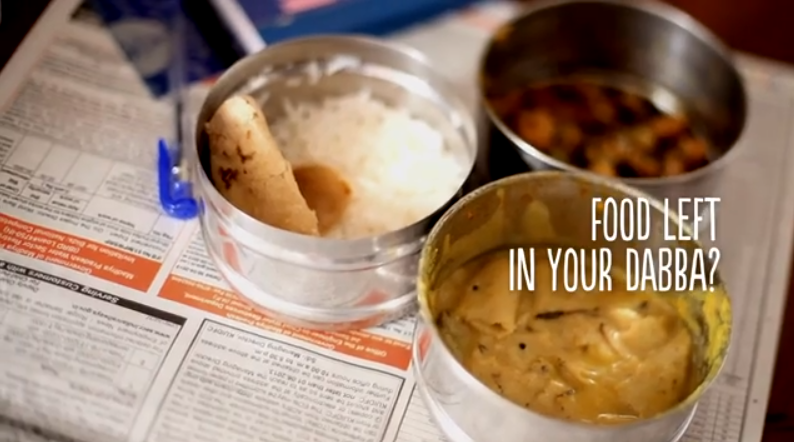By: Hyacinth Mascarenhas
The fate of almost 200,000 Mumbai residents’ daily lunches lies in the hands of the city’s efficient lunch delivery men, or dabbawalas.
Delivering nearly 120 tons of home-made food in tin lunch boxes or “dabbas,” regardless of rain or shine, dabbawalas can be seen across the city balancing more than 30 lunch pails on their heads or pushing hard cards filled with the silver tins.
Each tin will change hands at least four times on average in its journey from a home kitchen to the right hungry office worker on time. The empty boxes are then returned back to customer’s residence.
This unique six sigma certified system is renowned for its time management, customer satisfaction and minimal error. According to Forbes Global, this means they make only one single error in six million human transactions.
However, despite their legendary efficiency rate of 99.9 percent, an estimated 16 tons of food still go to waste.
Now, a unique charity campaign aims to tap into this “magic” delivery system to create social impact.
“Share My Dabba” is a socially innovative campaign that aims to use the existing dabbawala network to feed Mumbai’s hungry street children.
As a non-profit collaboration between the Happy Life Welfare Society and the Dabbawala Foundation, the campaign’s video has already racked up more than 300,000 views on YouTube.
In order to participate, all you have to do is mark your dabba with a ‘share’ sticker if there is any food you want to share. Sticker-marked tins are separated by the dabbawalas later and left with volunteers on their way back to empty out the food and distribute to the children.
The entire distribution process is completed in 15 minutes during which the dabbawalas assemble, arrange the tiffin boxes and leave to continue their journey.
“We don’t see it as leftover food,” said Kanupirya Singh, founder of The Happy Life Welfare Society. “What people want to share, we take and we are able to give it to someone else within two hours of the lunch pick up and drop off.”
The pilot program was launched in April to iron out any kinks in the service and delivery runs.
“We work on a very tight schedule. Our business is on-time delivery,” said Abhishek Dinkar Ekal, vice president of the Dabbawala Foundation. “So our biggest challenge has been to motivate the dabbawalas to take this on without spoiling their schedules, their efficiency.”
To do so, HLWS volunteers went to nearby slums to talk to the children and their families about a pick-up area where they could go and collect the food.
“Now, the children turn up with their own utensils. Our volunteers serve the food from the dabbas to the kids. All this has to work with clockwork precision as the dabbawallas can’t afford to be a second late,” said Singh.
According to Ekal, about 40 to 50 dabbawalas have agreed to participate in the project with almost twice as more promising to join next month.
The program also feeds as many as 20 children on average in each of its four locations across Mumbai.
The video highlights the stark disparity between the rich and the poor in a city of 18 million where 200,000 children go hungry every day.
According to the National, only one lunch box arrived at a location last week where children were waiting for some food.
“It was completely untouched,” said Singh. “Whoever had donated his lunch that day had not eaten a bite. We fed eight children that day.”




















[…] Feeding the children of Mumbai one “dabba” at a time. June 11, 2013. […]